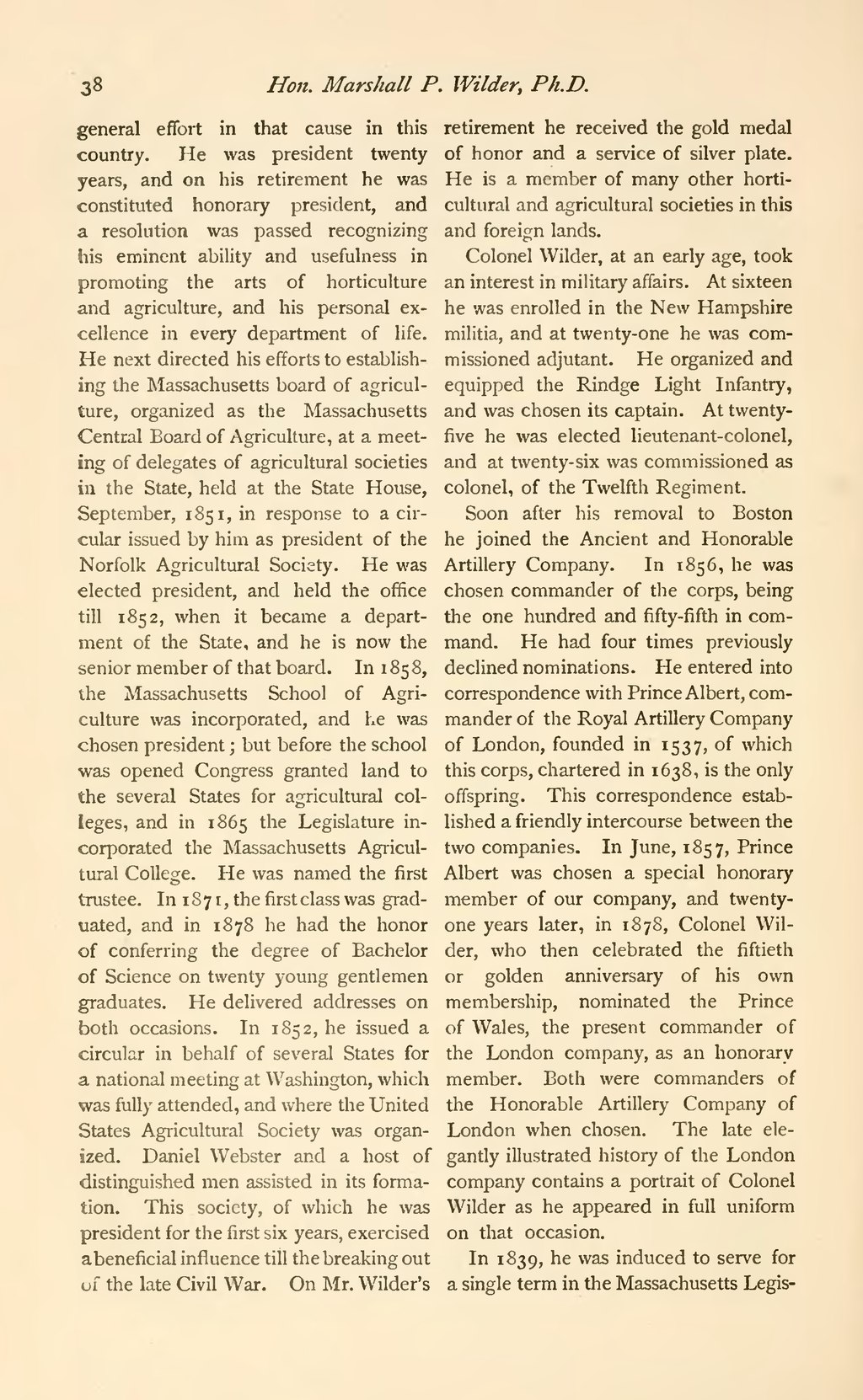38
��Hon. Marshall P. Wilder, Ph.D.
��general effort in that cause in this country. He was president twenty years, and on his retirement he was constituted honorary president, and a resolution was passed recognizing his eminent ability and usefulness in promoting the arts of horticulture and agriculture, and his personal ex- cellence in every department of life. He next directed his efforts to establish- ing the Massachusetts board of agricul- ture, organized as the Massachusetts Central Board of Agriculture, at a meet- ing of delegates of agricultural societies in the State, held at the State House, September, 185 1, in response to a cir- cular issued by him as president of the Norfollc Agricultural Society. He was elected president, and held the office till 1852, when it became a depart- ment of the State, and he is now the senior member of that board. In 1 85 8, the Massachusetts School of Agri- culture was incorporated, and he was chosen president ; but before the school was opened Congress granted land to the several States for agricultural col- leges, and in 1865 the Legislature in- corporated the Massachusetts Agricul- tural College. He was named the first trustee. In 1 8 7 1 , the first class was grad- uated, and in 1878 he had the honor of conferring the degree of Bachelor of Science on twenty young gentlemen graduates. He delivered addresses on both occasions. In 1852, he issued a circular in behalf of several States for a national meeting at Washington, which was fully attended, and where the United States Agricultural Society was organ- ized. Daniel Webster and a host of distinguished men assisted in its forma- tion. This society, of which he was president for the first six years, exercised abeneficial influence till the breaking out uf the late Civil War. On Mr. Wilder's
��retirement he received the gold medal of honor and a service of silver plate. He is a member of many other horti- cultural and agricultural societies in this and foreign lands.
Colonel Wilder, at an early age, took an interest in mihtary affairs. At sixteen he was enrolled in the New Hampshire militia, and at twenty-one he was com- missioned adjutant. He organized and equipped the Rindge Light Infantry, and was chosen its captain. At twenty- five he was elected lieutenant-colonel, and at twenty-six was commissioned as colonel, of the Twelfth Regiment.
Soon after his removal to Boston he joined the Ancient and Honorable Artillery Company. In 1856, he was chosen commander of the corps, being the one hundred and fifty-fifth in com- mand. He had four times previously declined nominations. He entered into correspondence with Prince Albert, com- mander of the Royal Artillery Company of London, founded in 1537, of which this corps, chartered in 1638, is the only offspring. This correspondence estab- lished a friendly intercourse between the two companies. In June, 1857, Prince Albert was chosen a special honorary member of our company, and twenty- one years later, in 1878, Colonel Wil- der, who then celebrated the fiftieth or golden anniversary of his own membership, nominated the Prince of Wales, the present commander of the London company, as an honorary member. Both were commanders of the Honorable Artillery Company of London when chosen. The late ele- gantly illustrated history of the London company contains a portrait of Colonel Wilder as he appeared in full uniform on that occasion.
In 1839, he was induced to serve for a single term in the Massachusetts Legis-
�� �
